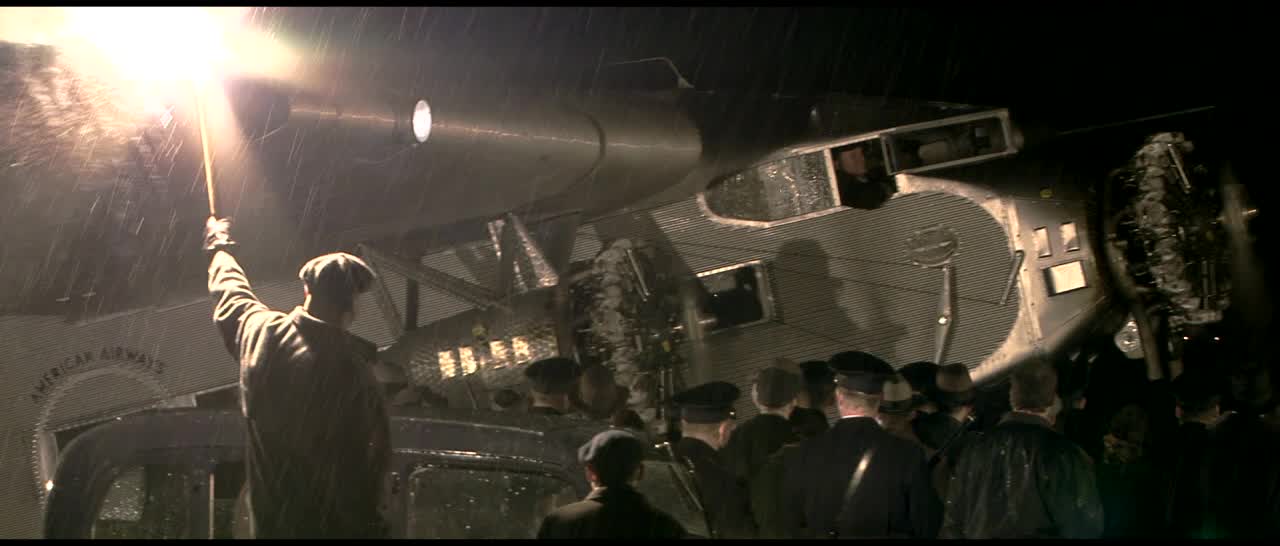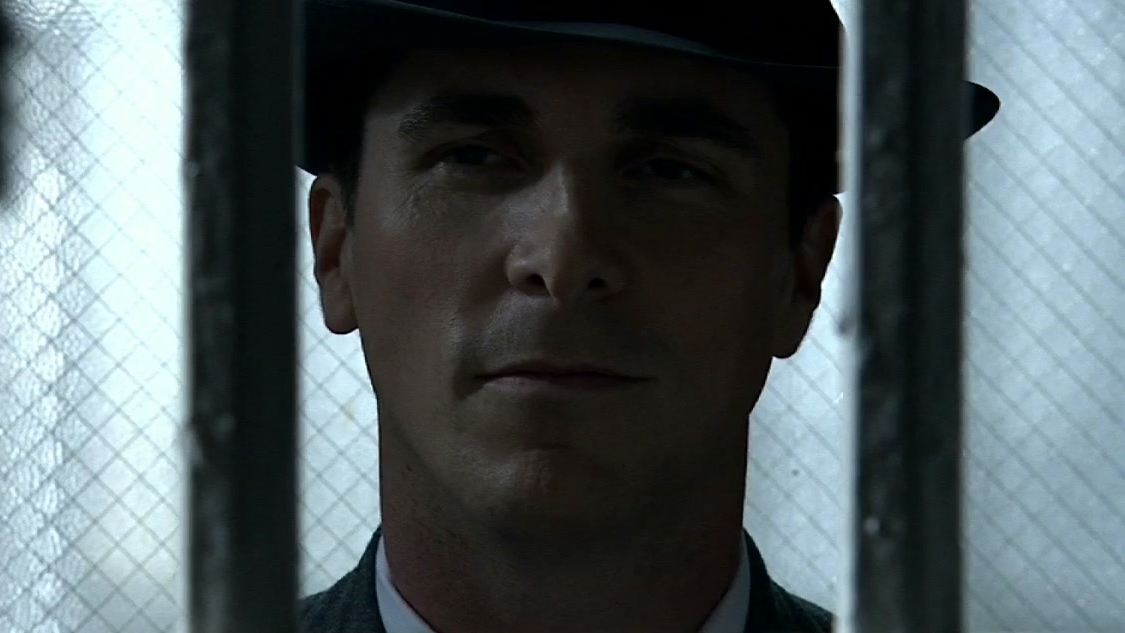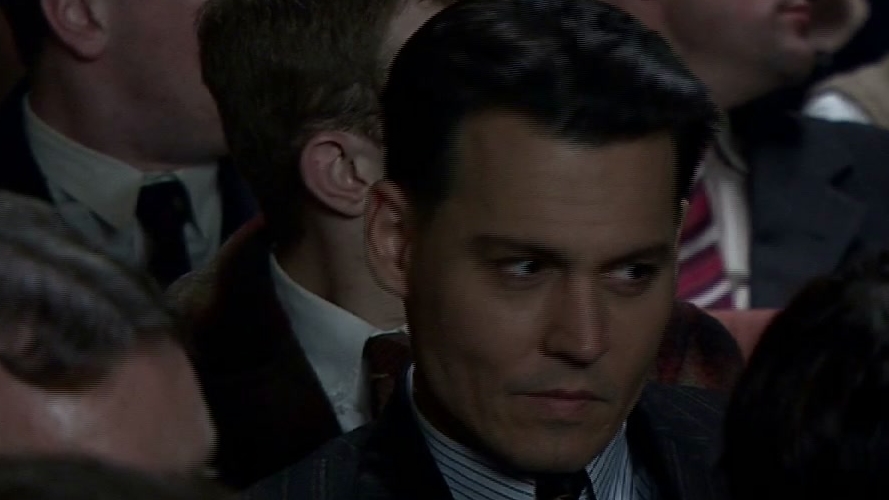Los federales intentan pararles los pies a los notorios gánsteres John Dillinger, Baby Face Nelson, y Pretty Boy Floyd durante la ola de crímenes de los años 30.Los federales intentan pararles los pies a los notorios gánsteres John Dillinger, Baby Face Nelson, y Pretty Boy Floyd durante la ola de crímenes de los años 30.Los federales intentan pararles los pies a los notorios gánsteres John Dillinger, Baby Face Nelson, y Pretty Boy Floyd durante la ola de crímenes de los años 30.
- Premios
- 1 premio y 14 nominaciones en total
Argumento
¿Sabías que...?
- CuriosidadesJohn Dillinger's lawyer at Crown Point, Louis Piquett, never went to law school. He passed the bar on his fourth attempt, receiving his license to practice in 1920.
- PifiasThe Billie Holiday songs heard on the radio were not recorded until the late thirties, long after John Dillinger's death. She had recorded only two songs before the time of the film, Your Mother's Son-in-law and Riffin' the Scotch, neither of which are heard in it. (When Dillinger died in July 1934 Holiday was a little-known cabaret singer in New York, so it's unlikely a live show of hers would have been broadcast anywhere, let alone as far from her home base as Chicago.)
- Citas
John Dillinger: I was raised on a farm in Moooresville, Indiana. My mama died when I was three, my daddy beat the hell out of me cause he didn't know no better way to raise me. I like baseball, movies, good clothes, fast cars, whiskey, and you... what else you need to know?
- Créditos adicionalesThe title of the movie is not shown until the end credits.
- Versiones alternativasFor unknown reasons, all Blu-rays other than the North American, United Kingdom, and Australian releases have 12 seemingly random seconds cut from the scene when John Dillinger is transported to Indiana and there is a media scrum at the airfield. The excised material is wholly in the form of tighter editing on certain shots. For example, the shot of the plane coming to a stop is 1 second shorter, the shot of Dillinger being taken off the plane is 5 seconds shorter, the shot of the man with the flare is 2 seconds shorter.
- ConexionesFeatured in The 81st Annual Academy Awards (2009)
- Banda sonoraGuide Me O Thou Great Jehovah
Sung by members of the Indian Bottom Association Old Regular Baptists
Courtesy of Smithsonian Folkways Recordings
Look at another title of a movie about a doomed but spectacular crime spree: Arthur Penn's 'Bonnie and Clyde.' That 1967 classic works so well because it's character-driven. Even in the sketchy but powerful scenes that outline John Dillinger's romance with French-Native American hatcheck girl Billie Frechette (Marion Cottillard, working wonders with limited material), character is subsidiary to function: "I rob banks," Johnny says. And then: "What else you need to know?" Well, quite a lot, actually, for a rounded character to emerge. Mann's movie is meticulous as to period look, to facade, but not to essence. Its street scenes are full of detail, its clothes immaculate and accurate. Taking place in 1933-34, however, it provides too few overt signs of the Great Depression. The film is also misleading in showing the Dillinger gang only robbing grand, marble-hall-and-column banks, when in fact they mostly robbed small and middling sized ones.
The overall result is a collection of contradictions. There is romance, but the effect isn't romantic. There's precise realism, but the overall effect isn't realistic. Perhaps the only unmitigated pleasure that remains is the images, the digital with its cold precision, its crisp edges even when many of the cameras are jiggly and hand-held, the depth of detail in darkness, the color that is neither bright nor faded, the sheer satisfying crispness of everything and everybody. And in this one aspect, a sublimely heightened vérité whose look is something quite new, 'Public Enemies' matches 'Bonnie and Clyde:' it makes us feel we're seeing period scenes with contemporary eyes. The best and most memorable images are the complex ones you won't see in stills where many actors are running back and forth in front of the camera, the gunshots are popping realistically in every direction, and there is no hint of the usual film chiaroscuro or highlighting, but the light is somehow beautiful. The cameras move too much, but they do rub your face in the action. What's gong on you may figure out later.
Maybe you can't avoid mythologizing when you shoot a movie about a famous Thirties bank robber and shouldn't try to, but Mann does. He's working, with great accomplishment, from that meticulous historical account, involving dozens of players on both the cop and the crook sides. Dillinger (and alternatively the totally unappealing Purvis) stay in the foreground. But there too is a contradiction, because the way Depp plays his part, witty, cold, and focused rather than warm and down-to-earth, his character ends up being impressive, but ultimately absent. (Contrast Warren Beatty's impotence and blinking charm as Clyde Barrow, an absence you yet want to cuddle.) Even when the characters are strong in Public Enemies, they don't get enough chance to interact. Dillinger is rarely with Frechette. His chance to confront Purivs is too brief, the moment when Purvis tells him he's to be extradited to Indiana and he quips, "There's absolutely nothing I want to do in Indiana." He's not facing off Purvis; he's playing to the audience.
This should have been one of the showpieces of the season, and it is indeed a blockbuster with class in a world of junk. Its virtuoso look and complexly orchestrated scenes will hold up with time, but despite a freshness in approaching familiar genre material, it's missing that certain 'je ne sais quoi.' Even though it's different, it lacks style, movie-making panache, playfulness, suspense, the ability to push a climax, the capacity to take a breather so the momentum builds up again. There's an impressive twittering machine functioning here on all its Ford V8 cylinders. But the light touch is missing, the capacity to make you say "Yeah!", to simultaneously stand apart and admire while utterly caught up in it all.
- Chris Knipp
- 4 jul 2009
- Enlace permanente
Selecciones populares
Detalles
- Fecha de lanzamiento
- Países de origen
- Idioma
- Títulos en diferentes países
- Enemics públics
- Localizaciones del rodaje
- Empresas productoras
- Ver más compañías en los créditos en IMDbPro
Taquilla
- Presupuesto
- 100.000.000 US$ (estimación)
- Recaudación en Estados Unidos y Canadá
- 97.104.620 US$
- Fin de semana de estreno en EE. UU. y Canadá
- 25.271.675 US$
- 5 jul 2009
- Recaudación en todo el mundo
- 214.104.620 US$
- Duración2 horas 20 minutos
- Color
- Mezcla de sonido
- Relación de aspecto
- 2.35 : 1






































